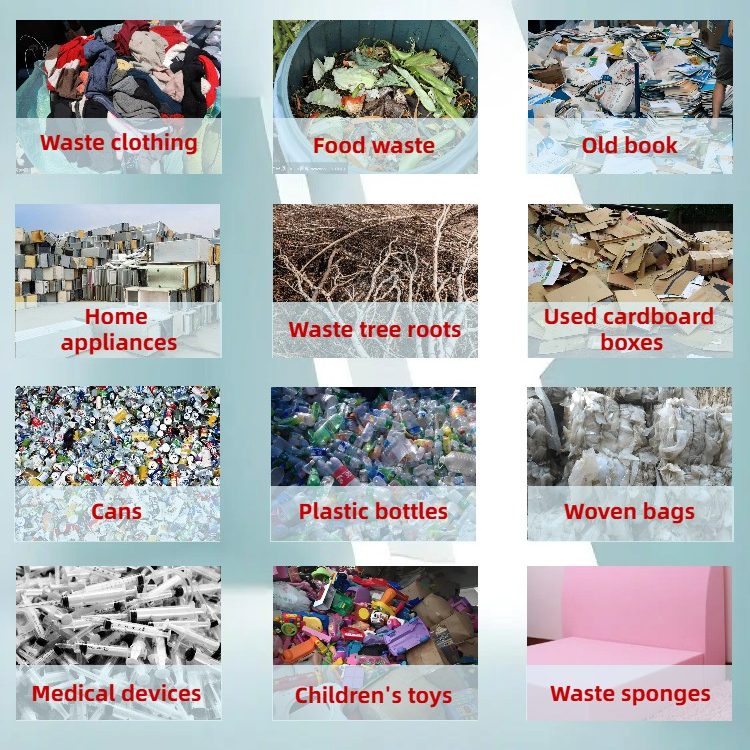What are the ways to dispose of Household garbage?
The increase in Household waste is inseparable from economic development and changes in people’s consumption habits. With the increasing amount of Household waste, if Household waste is not handled in a timely and scientific manner, it will not only affect environmental sanitation, but also cause great harm to people’s health, especially in densely populated urban areas. Garbage disposal is indeed a headache. Here are some ways to deal with Household waste.

一、Landfill
Landfill is to bury the garbage directly underground for natural decomposition and degradation. It uses potholes to bury garbage, which can not only dispose of waste, but also cover the land. It is the earliest, most widely used and most traditional method of garbage disposal.
Disadvantages of landfill
- It occupies a large amount of land resources, and landfill does not reduce the amount of garbage;
- There are many restrictions on landfill sites, and it is difficult to select a site. A large amount of Household waste requires a huge landfill site, which makes it difficult to select a site for a new landfill;
- Leachate is difficult to handle and easily pollutes groundwater and soil. Landfills have a high risk of environmental pollution. Household waste landfills do not effectively treat pollution sources. With the increase in stockpiles and the extension of time, it is easy to cause leakage and pollute the surrounding environment such as soil and groundwater;
- Landfills are prone to produce gases such as methane. Biogas is difficult to collect and treat. In addition to polluting the environment, it is also easy to cause explosions.
二、Incineration Waste incineration is to place garbage in a high-temperature furnace to make it undergo appropriate thermal decomposition, combustion, melting and other reactions, and reduce its volume through oxidation at high temperature to make it a residue or molten solid material. The heat generated can be used for power generation and heating.
Disadvantages of waste incineration
- It is easy to cause environmental pollution, such as dioxins, fly ash, wastewater, etc.;
- Large equipment investment and long capital occupation cycle;
- High technical integration and high management and guarantee level requirements;
- Garbage classification is imperfect, and pretreatment before incineration is relatively complicated.
三、Resource disposal
There are a lot of recyclable materials in Household waste, such as high calorific value combustibles can be prepared into alternative fuels (RDF, SRF) to reduce the use of coal, organic matter can be made into compost or used for biogas fermentation, plastics, glass, metals, waste paper and other high-value recyclables can be directly refurbished or used as raw materials for processing, so resource disposal is a very good choice.
Characteristics of Household waste resource utilization
- Resource utilization of Household waste can save resources and reduce dependence on natural resources. Garbage contains many recyclable resources, such as plastics, metals, paper, glass, etc. These resources can be recycled and reused to reduce dependence on raw materials, reduce production costs, and also reduce the consumption of natural resources.
- Resource utilization of Household waste can reduce environmental pollution and protect the environment. Garbage contains a lot of harmful substances, such as wastewater, waste gas, waste residue, etc. These substances will pollute the environment, and through the resource utilization of garbage, these harmful substances can be treated to reduce pollution to the environment. At the same time, waste resource recycling can also reduce the accumulation of garbage, reduce the occupation of land and water sources, and thus protect the environment.
- The resource recycling of Household waste can create economic and social benefits. The resource recycling of garbage can produce new products and services, create new economic and social value, and at the same time create employment opportunities for the society and promote economic development.
- The resource recycling of Household waste can improve people’s environmental awareness and sense of responsibility. Through the resource recycling of garbage, people can better understand the harm of garbage, improve environmental awareness and sense of responsibility, and thus more consciously participate in environmental protection.
In summary, the resource recycling of Household waste has important economic, environmental and social benefits, and is an important way to achieve sustainable development. We should strengthen the publicity and promotion of waste resource recycling, encourage people to participate in waste resource recycling, and jointly protect our environment and the earth.



